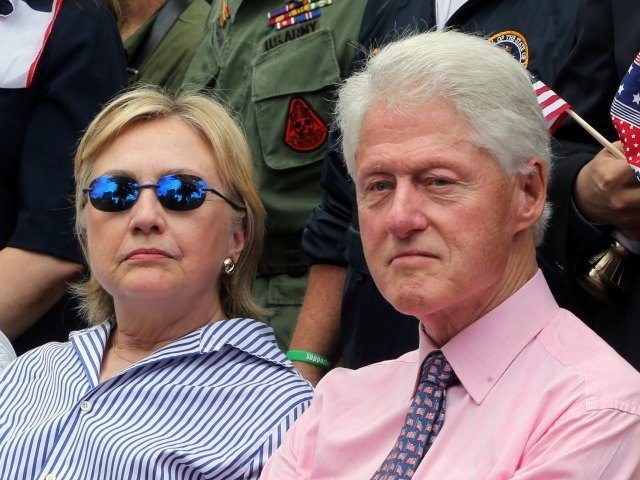Left-leaning FactCheck.org was forced on Thursday to make an embarrassing correction after they incorrectly attributed a quote from Peter’s Schweizer’s Clinton Cash that never appeared in the book.
“Correction: June 23: Our original story incorrectly stated that Schweizer wrote in his book that Clinton had veto power over the sale,” admitted FactCheck.org.
The embarrassing “mistake” occurred in a fact-check involving the well-documented and confirmed Schweizer revelation that Hillary Clinton’s State Dept. approved the transfer of 20 percent of U.S. uranium to the Russian government, as nine investors in the deal funneled $145 million to Hillary Clinton’s foundation. Originally, FactCheck.org claimed the following:
In his book, “Clinton Cash,” which Trump referred to in his speech, author Peter Schweizer claimed that Clinton, as a committee member, had ‘veto power’ and ‘could have stopped’ the sale. But that’s not accurate. The committee can approve a sale, but it cannot stop a sale.
There’s just one problem: contrary to what FactCheck.org reported, the words “veto power” and “could have stopped” appear nowhere in the Clinton Cash book in relation to Hillary Clinton’s State Dept. approving the transfer of American uranium to Putin’s Russia. Hence, FactCheck.org was forced to issue the following embarrassing correction:
Correction, June 23: Our original story incorrectly stated that Schweizer wrote in his book that Clinton had veto power over the sale. Schweizer said that in a TV interview, not in his book. We have revised our story to correct the record.
In fact, all decisions affecting the sale of national strategic assets like uranium must be reviewed by a nine agency panel, which included Hillary Clinton’s State Dept., called the Committee on Foreign Investments in the United States (CFIUS). If even a single member objects to a deal, it goes straight to the president. As Clinton Cash reported on pg. 54, “Hillary’s opposition would have been enough under CFIUS rules to have the decision the transaction kicked up to the president. That never happened.” Schweizer’s “veto” comment on TV was merely a shorthand way of expressing his carefully crafted and exhaustively researched chapter on the subject.
Several axial questions remain unanswered by Hillary Clinton involving her uranium transfer to Russia. Why didn’t Hillary Clinton disclose her glaring conflict of interest to CFIUS in having her State Dept. vote on a matter wherein nine investors in the deal gave her family foundation $145 million? And why didn’t Hillary Clinton disclose that prior to the CFIUS vote, her husband Bill Clinton was paid $500,000 by a Kremlin-backed bank for a speech in Moscow while Hillary led the Obama administration’s so-called Russian reset? Indeed, that Clinton Cash revelation was so provocative, even the progressive New Yorker magazine expressed its exasperation. Why was Bill Clinton taking any money from a bank linked to the Kremlin while his wife was Secretary of State?” asked the New Yorker.
Much to the Clinton campaign’s shock and dismay, myriad progressive media outlets like the New York Times, Washington Post, Bloomberg, and ABC News have all confirmed and verified Clinton Cash’s investigative findings. As the New York Times reported, Schweizer “writes mainly in the voice of a neutral journalist and meticulously documents his sources, including tax records and government documents.”
Perhaps FactCheck.org and other Hillary Clinton fan websites would do well to actually read Clinton Cash before erroneously quoting passages that do not exist and being forced to issue humiliating corrections.

COMMENTS
Please let us know if you're having issues with commenting.